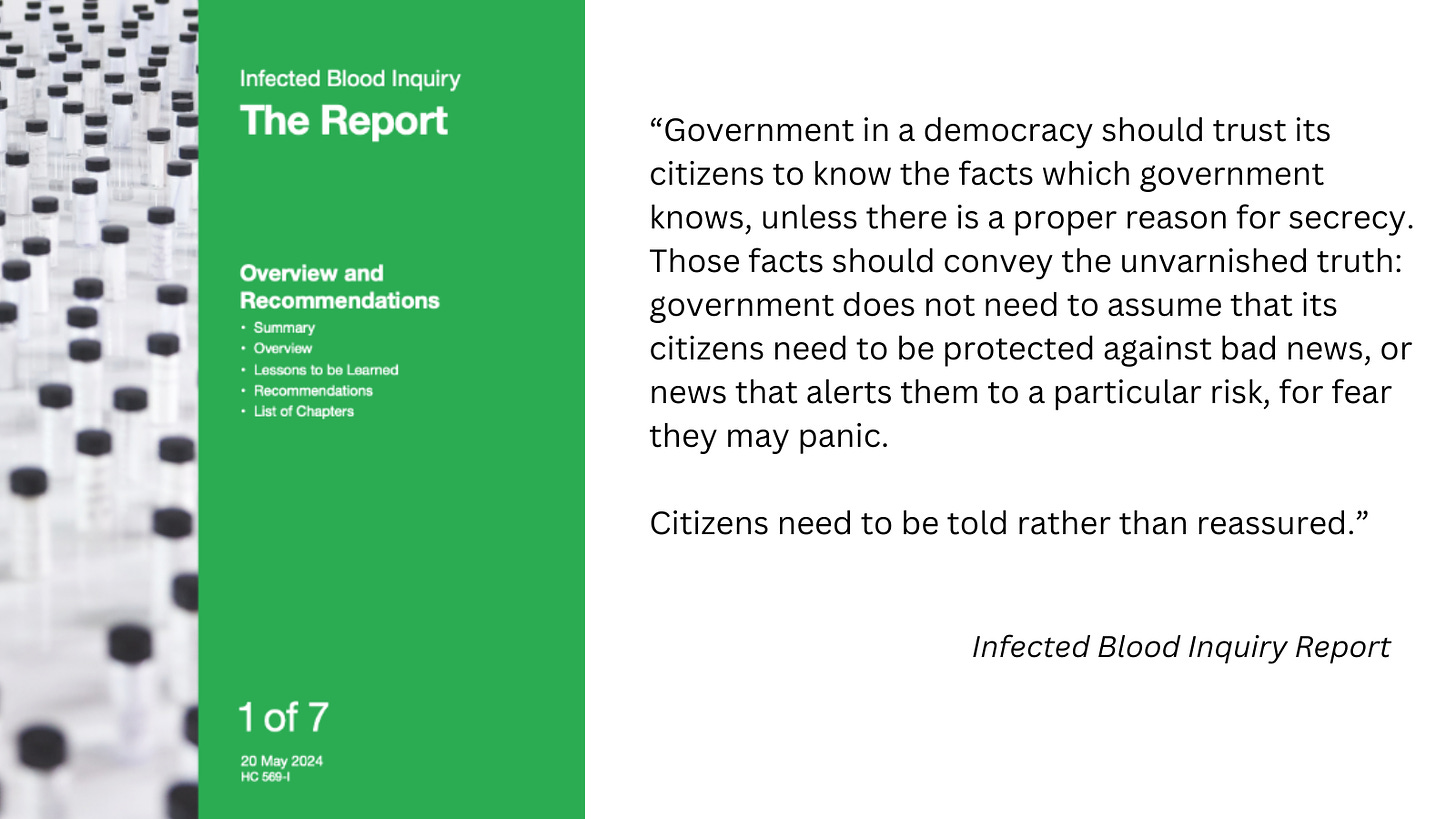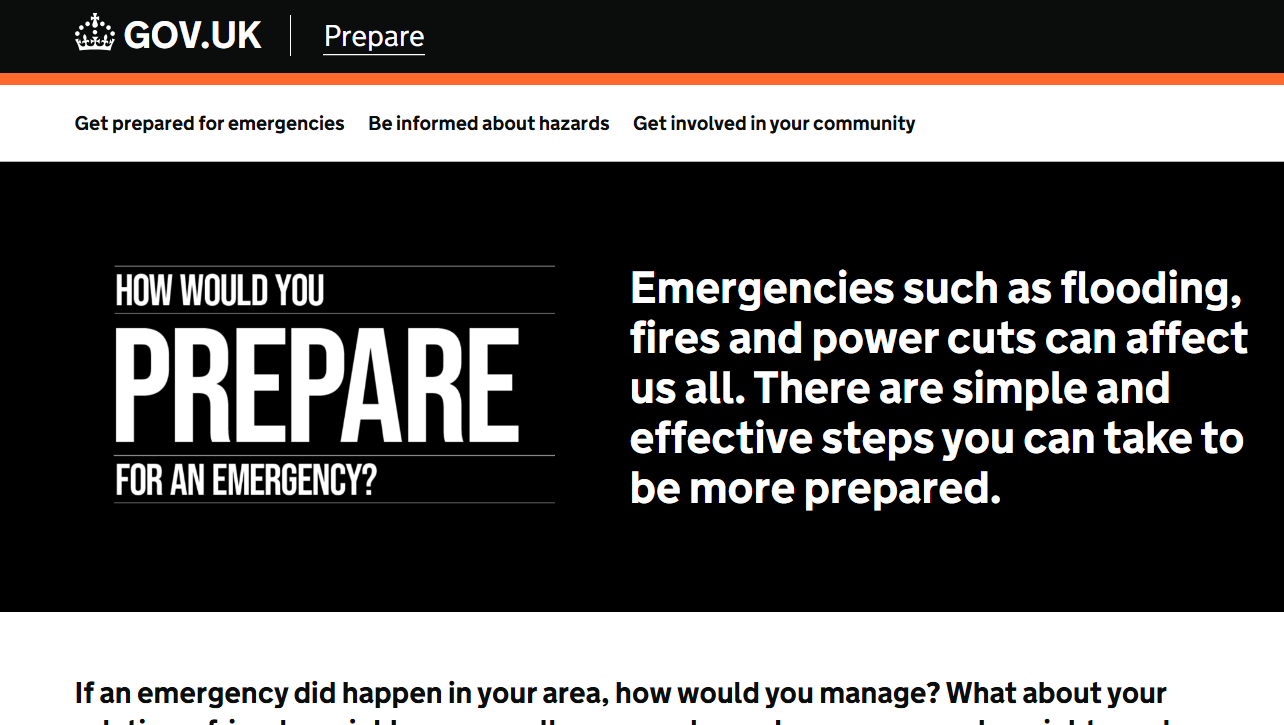Remembering the real lives affected by crisis and disaster
This has been a really difficult week for so many people. At the start of the week was the damming report from the Infected Blood Inquiry that found decades of ‘institutional defensiveness’ and worse. On Wednesday it was the seventh anniversary of the terror attack at Manchester Arena, a day I will always remember. It was also the day that the subpostmasters start to hear evidence from the former CEO of the Post Office Paula Vennells at the Post Office Horizon IT inquiry. (I gave some thoughts on her apology to PR Week, read it here.)
All of these situations had a huge impact on so many people, and so many real lives. When thousands are affected we talk about the numbers and remembering that those are people with families, lives and hopes is challenging. The same issue occurs with all disasters where those responding lose sight of what matters the most.
In the seven years since the Arena attack happened I have tried to continue to raise the issue of reshaping and refocusing crisis communication plans. It is vital that they are striving to help those affected. It is vital that they are founded in honesty, integrity and authenticity from organisations. It is vital that reputation is never the driving force for communicating in a crisis.
The frustration I have is that the same ‘institutional defensiveness’ can still be seen today and organisations continue to be risk averse attempting to develop their own truth which they will stick to. So what actions can we take to make a change, particularly as communicators?
Put people at the heart of the crisis communication response.
Consider what you will say and how you will say it when something happens and don’t just rely on facts without emotion.
Push for authentic communication that will be supported by the actions that are taken.
Ask the tough questions and challenge when a single version of the truth is being prepared.
Ensure the communication involves listening. Listening and understanding people’s views, opinions and experiences.
None of these things are as easy as they seem given the culture and behaviour within some organisations and among those leading organisations. But if we are to ever be able to move forward we need to do things differently, and we need to do things better. I leave the last word to the line below from Sir Brian Langstaff’s report on the infected blood scandal.
In Conversation with Professor Lucy Easthope
A huge thank you to everyone that was able to join me in conversation with Professor Lucy Easthope it was a fascinating and interesting discussion. If you want to find out what was covered during the 90 minute session I have outlined some of the key points in an article - read it here.
If you enjoyed the session let us know what you would like to see in future. Some suggestions have been to consider running through a specific case and what happened and what could have happened, focusing on the issue of resilience, and looking at the duty of candour and charter for the bereaved and what these actually mean to how things operate. Send any thoughts to amanda@amandacolemancomms.co.uk
Resilience website
On the day the UK Government called the next General Election, they also launched a new website with advice for the public about how to be prepared for an emergency. The Prepare website (view it here) includes details of steps to take, how to be informed about emergencies, and how to get involved in the response. The information is very generic but it is a starting point and hopefully will lead to a more informed discussion about emergency preparedness.
In Brief:
After Barclays found themselves with a boycott to consider, Amanda gave some thoughts on managing such situations for an article in PR Week. Read more about it here.
Wildfires in Northern B.C., Yukon, and Northwest Territories left many without Internet and phone services at a time when emergency messages needed to be sent. Find out more about the situation here.
A report is due out at the end of May consider how ‘populist’ politicians spread misinformation during the Covid-19 pandemic. Find out more about the research here.
A new article in the International Journal of Disaster Risk Reduction considers a modelling framework to assess and control the risk of the emergency evacuation process when there is a toxic gas release. Find out more here.
The Journal of Retailing and Consumer Services has published a report that considers how to address the type of panic buying that was witnessed during the Covid-19 pandemic. Read more here.
A report on flooding in Nova Scotia in July 2023 has highlighted challenges and delays to the emergency alert being issued. Poor cell phone service and the fact some phones were not set up to receive alerts caused problems according to the report. Read more here.
Fire crews in Maui have been considering how they can improve the communication coverage to improve cellular and broadband access in emergencies. Find out more about the discussion here.
Emergency sirens were heard in Des Moines due to technical issues. Read more about what happened here.
A recent report analysed a series of campaign and marketing failures that have caused controversy. The latest was the Apple advert that led to an apology and withdrawal from the company. Find out what we can learn from these situations.
The next edition of the crisis communication case study Testing Times will be published in a week’s time. If you would like to receive a copy email amanda@amandacolemancomms.co.uk
Diary Dates:
On Tuesday 28 May Amanda will join Ed Conley and Dan Stoneking on a panel for the CIPR Crisis Communication Network. It will look at the practical elements of natural disasters. Find out more here.
Amanda will be running a morning training session on Thursday 6 June about Developing a Communication Strategy for the PRCA. Find out more about the session here.
The next short training session by Amanda is on Wednesday 19 June and focuses on Internal Communication in a Crisis. If you are interested in joining the session which is two hours long email office@amandacolemancomms.co.uk
On Thursday 20 June Amanda will be running a crisis communication session for local government and public sector communicators on behalf of Westco. Find out more about the session here.




